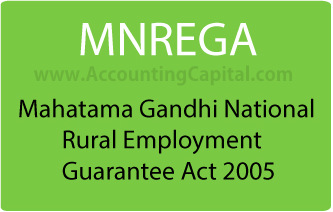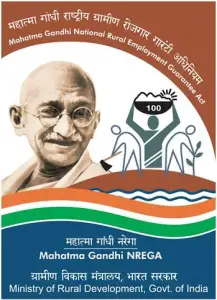MNREGA
On September 5th 2005 with assent of the president of India a new policy came into existence which worked towards providing livelihood security in rural areas of India. It started with the name “NREGA” which stood for National Rural Employment Guarantee Act and then an additional letter “M” was prefixed making it “MNREGA” Mahatma Gandhi National Rural Employment Guarantee Act. MNREGA is an employment scheme which provides social security by guaranteeing a minimum of 100 days paid work per year to all the families whose adult members opt for unskilled labor-intensive work.
History
After three years of observation, the government launched schemes like Jawahar Rozgaar Yojana, Food for Work Programme, Sampurna Grameen Rozgaar Yojna. These acts were predecessor to Mahatma Gandhi National Rural Employment Guarantee Act, which was a legal title. This act was firstly initiated in Maharashtra in 1970’s by Former Chief Minister of Maharashtra Vasant Rao Naik. NREGA act resulted in a boon for millions of farmer families. This act was accepted by Planning Commission and later on accepted nationwide. Such acts gave lessons to government regarding ‘Rural Manpower Programme’ ‘Crash Scheme for Rural Employment’ ‘Drought Prone Area Programme’ ‘Marginal Farmers and Agricultural Laborers Scheme’. Keeping the objectives of wage employment, production of valuable assets and food security still, the government focuses on implementing new schemes by seeking drawbacks of old ones. MNREGA is one of the outcomes of same.
Key Features
1. To provide job security to all adult members for at least 100 days in a financial year
2. To create permanent wealth such as roads, ponds, wells.
3. Employment is provided within a range of 5 kms from residence of applicants.
4. Minimum wages will be provided.
5. Applicants will be given unemployment allowances, if work is not provided within 15 days of application.
Highlights
1. By 1st April 2008, this act covered all districts of India.
2. ‘Stellar Example of Rural Development’ is what World Bank termed this act, as per World Development Report 2014.
3. This act is executed by Gram Panchayats.
4. Labor-intensive tasks are preferred.
5. Women empowerment, environment protection, boosting social equality are the areas covered under NREGA act.
6. The act safeguards the effective and efficient management and implementation of its policies.
7. The act also ensures a genuine, transparent regulation of its activities.
MNREGA has been criticized for making agriculture less profitable as landless laborers are lazy and they don’t want to work on farms as they can get money without doing anything through minimum money guarantee at NREGA work sites.



Thanks…helped me a lot
Thanks b.
thank you so much its more informative
Comments are closed.